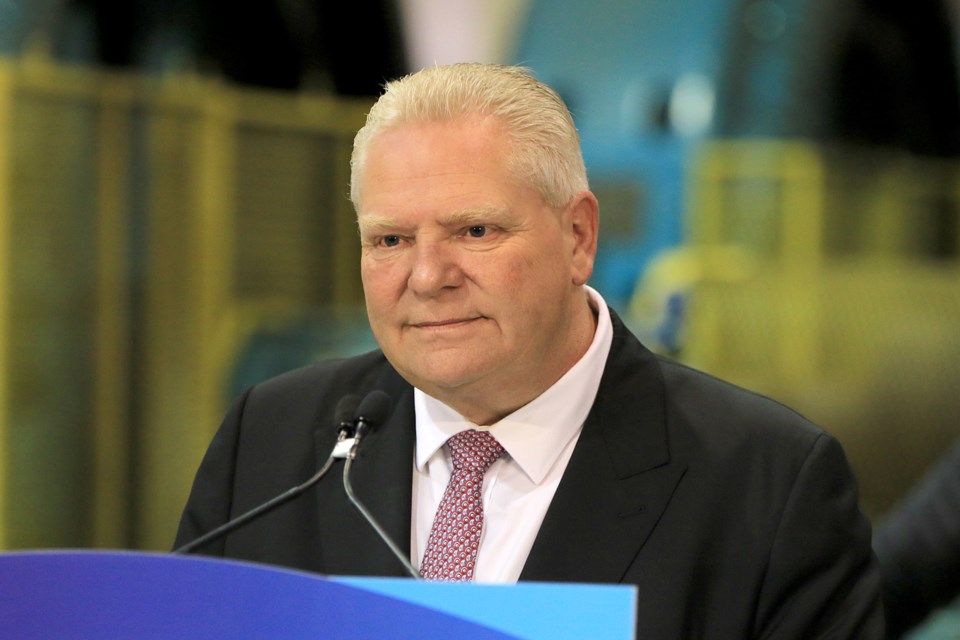OLIVER PAIPOONGE — Five Matawa First Nation communities could soon be connected to the Ontario power grid.
On Thursday, Ontario Premier Doug Ford announced the plan to build a transmission line through Marten Falls, Eabametoong, Webequie, Neskantaga and Nibinamik First Nations, though the project will still require extensive consultations with the communities in question before any work can proceed.
Ford, speaking at the Kakabeka Falls generating station, said the goal is to end the communities’ reliance on diesel-powered electricity, adding his government wants to ensure Ontario’s power supply remains reliable, cost-competitive and clean.
“Just as Ontario eliminated its reliance on coal, this is a historic opportunity to now end our dependence on diesel,” Ford said.
“Doing so starts with a partnership with First Nations leaders and communities. Our government is working with First Nations that wish to partner with us, to end their reliance on costly diesel-generated electricity. We’re making tremendous progress.”
The premier compared the new project, which doesn’t come with either a timeline or a price tag, to the soon-to-be completed Wataynikaneyap transmission line that to date has connected 15 First Nations communities to the power grid, with one remaining community still to come.
The province provided a $1.3-billion construction loan for that project.
One by one, chiefs from four of the five First Nations expressed support for the project, but only with the caveat of full consultation.
Eabametoong First Nation Chief Solomon Atlookan said some members of his community face electricity bills of $700 or more in the winter, a prohibitive cost that’s not sustainable.
“This should have been discussed a long time ago,” Atlookan said.
“Our residents are paying quite a bit more than probably any other (community) in northwestern Ontario (for power).... We need to work with the government on this. We can’t just let them go off on their own and plan things. We need to be there with them.”
Nibinamik First Nation Chief Michael Sugarhead said collaboration is imperative, with both senior levels of government, to make a project of this nature happen.
“We need to be deeply consulted and work in deep partnership with the province of Ontario and Canada, with other developments and to be thoroughly involved in other tables, such as critical mineral strategies, mining and every other development is to come — and municipal law,” Sugarhead said.
“We are not opposed to any type of development, but we need to be thoroughly involved in these processes so that our treaty, and what we were promised back in 1905, is upheld.”
Marten Falls First Nation Chief Bruce Achneepineskum called the project extremely important for all five communities, saying it’s beyond time for Marten Falls and the other communities to stop relying on diesel for power, adding a recent diesel generation upgrade to one megawatt of electricity was at capacity soon after completion.
“There’s a real dire need in the short term to come to shorter term solutions, but also keep an eye on the long-term solution, which is being connected to the grid. Energy is an important issue in our communities due to the fact we are growing communities,” Achneepineskum said.
The province has promised to prioritize input and direction from the communities and their leaders.
As a result, Energy Minister Todd Smith said it’s too early to provide many firm details about the project.
“This is very much the start of the conversation,” Smith said. “I’ve met with all of the chiefs and their teams over the last couple of months, culminating with today’s announcement that we’re moving forward.”
—TBnewswatch




